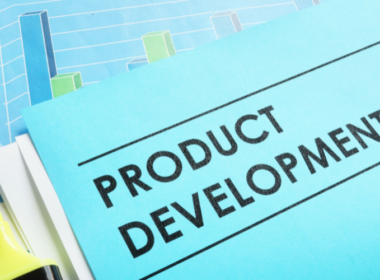Imagine a world where the design and development of products are no longer confined to the realm of human ingenuity alone. Artificial intelligence, with its boundless capacity for learning, analysis, and innovation, becomes an indispensable partner in the product engineering process. This is not a distant fantasy but a rapidly approaching reality, driven by the transformative power of AI and its potential to revolutionize the way we create and bring products to life.
As renowned author and futurist Alvin Toffler aptly stated,
“The illiterate of the 21st century will not be those who cannot read and write, but those who cannot learn, unlearn, and relearn.”
AI is empowering product engineers to embrace this continuous learning process, adapting to the ever-evolving technological landscape and consumer demands.
Picture a team of engineers and designers collaborating seamlessly with an AI assistant, a tireless companion that can sift through vast troves of data, identify patterns and trends, and generate novel solutions. This AI assistant, armed with its vast knowledge and expertise, can help engineers optimize designs, predict potential problems, and suggest innovative features.
The role of AI in product engineering extends far beyond mere assistance. It empowers engineers to push the boundaries of what is possible, to explore uncharted territories of design and functionality. With AI’s help, they can create products that are not only technologically advanced but also tailored to the specific needs and desires of users.
In this new era of AI-driven product engineering, the possibilities are endless. Imagine cars that can anticipate and adapt to their drivers’ needs, homes that can learn and adapt to their occupants’ habits, and medical devices that can diagnose and treat diseases with unprecedented precision.
The future of product engineering is not just about creating better products; it’s about creating products that are smarter, more intuitive, and more attuned to the needs of the ever-evolving world around us. AI is the key to unlocking this potential, the driving force behind a new era of innovation and progress.
How AI is Reshaping The Landscape of Product Engineering:
Design Optimization
AI algorithms can analyze vast amounts of data to identify patterns and trends, helping engineers optimize product designs for better performance, manufacturability, and cost-effectiveness. For instance, AI-powered design tools can analyze stress and strain data to identify potential failure points in a product, allowing engineers to make design changes before the product is manufactured. At codewave, we use AI tools to predict eyeball tracking, heatmaps, and clarity scores of the designs we create.
Toyota is using AI-powered design tools to optimize the design of its cars for better fuel efficiency and performance. These tools analyze data from wind tunnel tests and driving simulations to identify areas where the car’s aerodynamics can be improved.
Predictive Maintenance
AI can predict potential failures in products before they occur, enabling engineers to schedule maintenance proactively and prevent costly downtime. AI-powered predictive maintenance systems can monitor product performance data, such as vibration, temperature, and pressure, to identify anomalies that indicate potential problems.
GE is using an AI-powered predictive maintenance system to monitor the health of its jet engines. This system can predict potential failures in engines up to 30 days in advance, allowing GE to schedule maintenance before the engine fails. Codewave is working with HAL (Hindustan Aeronautics Limited) to achieve a similar predictive maintenance monitoring solution.
Personalized Products
In today’s era of consumer-centricity, personalization has become a crucial aspect of product development. AI is revolutionizing the way companies approach product personalization by enabling them to gather and analyze vast amounts of user data to create tailored experiences. This shift towards personalized products is driven by the increasing demand from consumers for products that cater to their unique preferences and needs.
Nike is using an AI-powered recommendation engine to suggest shoes to customers based on their individual needs and preferences. The recommendation engine analyzes data from customer purchases, foot scans, and walking patterns to make personalized recommendations.
Navigating Challenges in AI Implementation for Product Engineering Services
The use of Artificial Intelligence (AI) in product engineering brings about groundbreaking innovations, helping companies create efficient, cost-effective, and sustainable products. However, this journey comes with its own set of challenges. Let’s delve into the main issues with implementing AI in product engineering and how companies can overcome them.
Data Quality Challenge
AI needs lots of top-notch data for effective training. But getting this data is tough due to issues like incomplete, inconsistent, or biased information.
Data Privacy and Security:
The data used for AI training often has sensitive info. Keeping it safe from unauthorized access or theft is a big concern. Especially with the ChatGPTs of the world where private data can go into the public domain in no time, the security strategy is of paramount importance. We have helped super secure private AI solutions including LLMs like ChatGPT trained on client data like HR policies, instruction manuals, insurance policies, etc. Some solutions are also so private that they run on the intranet.
Technical Expertise:
Using AI in product engineering requires experts in data science, machine learning, and software engineering. Finding and hiring these experts is a tough task for many organizations.
Legacy Systems Issue:
Many organizations use old systems that weren’t built for AI. Integrating AI with these systems is a challenge, often needing significant changes to the existing setup.
Ethical Considerations:
AI’s widespread impact raises ethical concerns like bias, privacy breaches, and job displacement. Organizations need to carefully think about these issues and create responsible AI strategies.
Despite these challenges, the benefits of AI in product engineering are too good to ignore. Companies in product engineering are actively working on strategies to overcome these hurdles. Successfully doing so not only boosts operational efficiency but also gives them a strong competitive edge in their markets.
The Promising Horizon of AI in Product Engineering
The future of AI in product engineering is incredibly bright, with the power to transform every aspect of product development, from initial design to deployment and ongoing maintenance. Let’s explore some exciting trends and developments that will shape this transformative journey:
Automated Design Brilliance: AI acts as a design genius, automating the design process by creating numerous options based on user requirements and feedback. It also helps optimize designs, considering factors like cost, durability, and manufacturability.
Predictive Maintenance Mastery: AI brings a proactive approach to maintenance using predictive analytics, foreseeing potential issues before they arise. This foresight reduces downtime and cuts maintenance expenses. According to the US Department of Energy, implementing a well-functioning predictive maintenance program can deliver impressive outcomes, including a tenfold increase in ROI, a notable 25%-30% decrease in maintenance costs, a substantial 70%-75% reduction in breakdowns, and a significant 35%-45% cut in downtime.
Streamlined Manufacturing Efficiency: By automating complex manufacturing processes, AI minimizes errors and enhances productivity, streamlining operations in the manufacturing world.
Elevated Quality Control: AI’s analytical abilities boost quality control by examining sensors and data, identifying flaws, and improving overall product performance. According to a McKinsey report, AI can increase product quality by up to 50%.
Tailored Product Personalization: AI enters the world of personalized products, using user preferences to tailor offerings. This not only enhances consumer experiences but also builds brand loyalty.
Seamless Communication Advancement: With natural language processing, AI improves communication between customers and products, making user interaction effortless and providing easy access to information. This simplifies the user experience and fosters better product engagement.
In embracing these trends, the future of AI in product engineering holds the promise of efficiency, precision, and heightened user satisfaction. As organizations navigate this dynamic landscape, harnessing the potential of AI ensures a competitive edge and a future where product engineering transcends existing boundaries.
Conclusion: Our Expertise in AI-Powered Solutions
As we navigate the uncharted waters of AI-driven product engineering, it’s imperative to align with partners who possess the expertise to harness this transformative power. Codewave.com stands at the forefront, combining two decades of experience in AI and Machine Learning services to create cutting-edge solutions.
Our track record speaks volumes, exemplifying how AI can be seamlessly integrated into product engineering to unlock unprecedented possibilities. To embark on a journey of innovation and excellence, reach out to us. Let’s shape the future of product engineering together – where AI isn’t just a tool but a driving force behind transformative possibilities.








